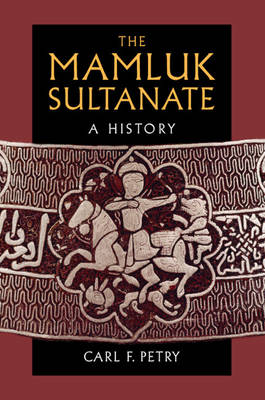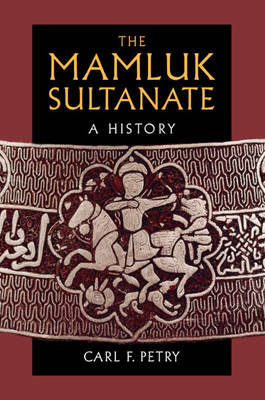
Door een staking bij bpost kan je online bestelling op dit moment iets langer onderweg zijn dan voorzien. Dringend iets nodig? Onze winkels ontvangen jou met open armen!
- Afhalen na 1 uur in een winkel met voorraad
- Gratis thuislevering in België vanaf € 30
- Ruim aanbod met 7 miljoen producten
Door een staking bij bpost kan je online bestelling op dit moment iets langer onderweg zijn dan voorzien. Dringend iets nodig? Onze winkels ontvangen jou met open armen!
- Afhalen na 1 uur in een winkel met voorraad
- Gratis thuislevering in België vanaf € 30
- Ruim aanbod met 7 miljoen producten
Zoeken
Omschrijving
The Mamluk Sultanate ruled Egypt, Syria and the Arabian hinterland along the Red Sea. Lasting from the deposition of the Ayyubid dynasty (c. 1250) to the Ottoman conquest of Egypt in 1517, this regime of slave-soldiers incorporated many of the political structures and cultural traditions of its Fatimid and Ayyubid predecessors. Yet its system of governance and centralisation of authority represented radical departures from the hierarchies of power that predated it. Providing a rich and comprehensive survey of events from the Sultanate's founding to the Ottoman occupation, this interdisciplinary book explores the Sultanate's identity and heritage after the Mongol conquests, the expedience of conspiratorial politics, and the close symbiosis of the military elite and civil bureaucracy. Carl F. Petry also considers the statecraft, foreign policy, economy and cultural legacy of the Sultanate, and its interaction with polities throughout the central Islamic world and beyond. In doing so, Petry reveals how the Mamluk Sultanate can be regarded as a significant experiment in the history of state-building within the pre-modern Islamic world.
Specificaties
Betrokkenen
- Auteur(s):
- Uitgeverij:
Inhoud
- Aantal bladzijden:
- 304
- Taal:
- Engels
Eigenschappen
- Productcode (EAN):
- 9781108456999
- Verschijningsdatum:
- 26/05/2022
- Uitvoering:
- Paperback
- Formaat:
- Trade paperback (VS)
- Afmetingen:
- 152 mm x 229 mm
- Gewicht:
- 508 g

Alleen bij Standaard Boekhandel
+ 62 punten op je klantenkaart van Standaard Boekhandel
Beoordelingen
We publiceren alleen reviews die voldoen aan de voorwaarden voor reviews. Bekijk onze voorwaarden voor reviews.











